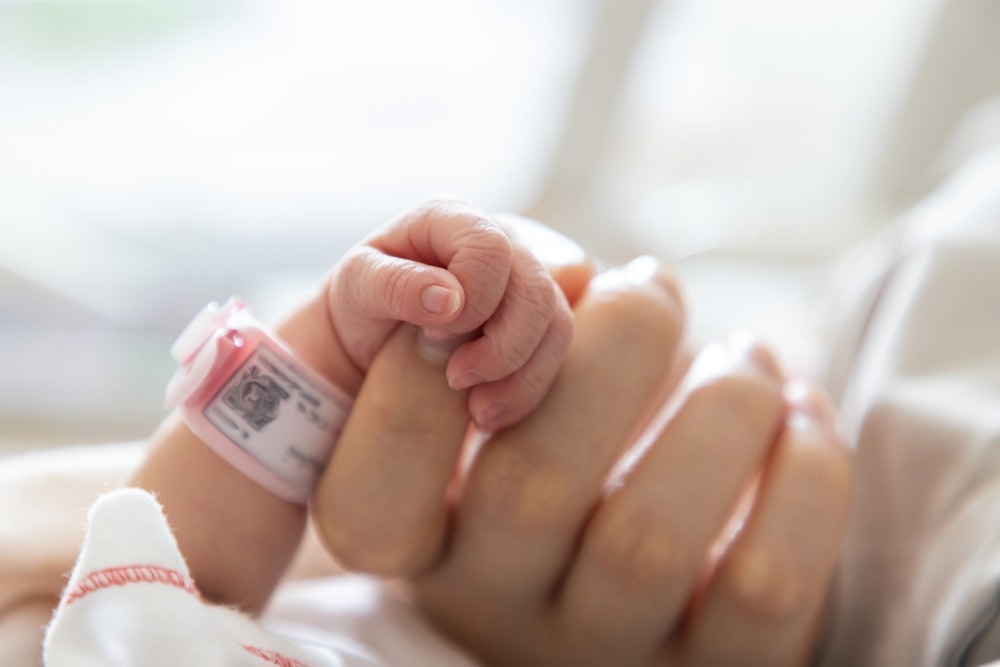In a recent study published in The Lancet’s eClinical Medicine, researchers evaluated the effects of the coronavirus disease 2019 (COVID-19) pandemic on family-centered care (FCC) practices for infants born to severe acute respiratory syndrome coronavirus 2 (SARS-CoV-2)-infected mothers.
Background
FCC includes co-habitation, direct physical contact, and breastfeeding, which are essential for maternal and neonatal well-being. Most guidelines during the SARS-CoV-2 pandemic were based on experts’ recommendations instead of scientific data. Fortunately, COVID-19 among neonates is rarely observed and is asymptomatic in most cases. However, several surveys have reported that FCC has been affected significantly for infants born during the coronavirus disease 2019 period.
About the study
In the present study, researchers assessed temporal changes in global FCC practices due to COVID-
FCC practice data were obtained from 692 infants born to women with prenatal SARS-CoV-2 infections from 13 neonatal intensive care unit (NICU) services across ten nations that participated in the EsPnIC Covid paEdiatric NeonaTal (EPICENTRE) prospective cohort, observational trial. The study was conducted between March 10, 2020, and October 20, 2021.
The primary outcomes of the study included breastfeeding and rooming-in rates. Secondary outcomes were maternal-neonatal direct contact before being separated and FCC practice patterns in relation to the local-level recommendations and the COVID-19 period. Neonatal and maternal COVID-19 was confirmed using the World Health Organization diagnostic criteria. The team identified appropriate maternal-neonatal dyads from hospitalization records, medical records, and laboratory reports.
Data were obtained om mother and infant demographics, birthing details, clinical conditions in the natal and postnatal periods, and the maternal and neonatal SARS-CoV-2 testing reports, including reverse transcription-polymerase chain reaction (RT-PCR) and serological assessments. Additionally, data were obtained on FCC practices such as breastfeeding, rooming-in maternal-neonatal separation, and combined breastmilk with formula/intravenous treatment/donor milk.
Results
Among 692 maternal-neonatal dyads (across 13 locations and ten nations) analyzed, only five percent (n=27) of infants were SARS-CoV-2-positive, and 52% (n=14) of them had an asymptomatic illness. The policies of most locations encouraged FCC practices during perinatal COVID-19, and 46% (n=311) of infants were roomed in along with the mothers at admission, among which 292 maternal-neonatal dyads presented with no symptoms.
Rooming-in rates elevated from 23.0% between March and June 2020 to rates as high as 74.0% between January and March 2021. Among the neonates, 54% (n=369) were separated from their maternal parent, of which 86% (n=319) did not have symptoms and were isolated in special care nurseries (SCN) or NICU units, and 93% (n=330) of the separated infants did not physically contact their mothers before being separated. Of interest, rooming-in rates declined to 17.0% between July and September 2021.
Even though there were only 60 infants during the period, considerable proportions of mothers had mild-moderate SARS-CoV-2 infections before-term births, and infants needing respiratory aid and/or oxygen supplementation were observed, compared to other periods. Among the infants, 53% (n=354) were breastfed, with breastfeeding rates reaching 70.0% in the period from January to March of 2021. The FCC practices were most affected in the case of symptomatic SARS-CoV-2 infections during birth. FCC was encouraged; however, maternal=neonatal separation (54%) and breastfeeding aversion (47%) were observed frequently, even among asymptomatic neonates.
Lack of breastfeeding and maternal-neonatal separation were related to maternal SARS-CoV-2 infection severity during delivery, preterm births, and cesarean deliveries. The mothers of separated infants showed a greater likelihood of having cesarean deliveries than those roomed in with their infants [244 (69%) vs. 91 (30%) respectively) and/or with severe SARS-CoV-2 infections during delivery [88 (25%) vs. five (2.0%)), respectively). Pre-term infants [182 (49%) vs. 16 (5.0%)] and infants with pulmonary failure [144 (39%) vs. two (1.0%) showed a greater likelihood of being separated.
Breastfeeding was less commonly observed among mothers experiencing severe and symptomatic SARS-CoV-2 infections during delivery, however; neonatal COVID-19 rates were comparable among breastfed and non-breastfed neonates. Prematurely born infants were less likely to be administered breastmilk, and opposite findings were observed among asymptomatic infants.
Breastmilk feeding showed positive associations with rooming-in, with a risk difference of 53.0%. Breastfeeding (mixed or exclusive) was noted for 81% of roomed-in neonates (n=250), compared to five percent of separated neonates (n=18). Maternal hospitalizations for non-COVID-19 reasons, cesarean deliveries, preterm births, and pulmonary failures increased maternal-neonatal separation.
Conclusion
Based on the study findings, COVID-19 impacted FCC practices for infants birthed to SARS-CoV-2-infected women; however, healthcare services evolved and adapted with time, with breastfeeding and rooming-in rates rising throughout the SARS-CoV-2 pandemic. Perinatal SARS-CoV-2 transmission was rarely observed and was of mild intensity whenever it occurred.
Thus, healthcare services are encouraged to continue implementing FCC practices during successive waves of COVID-19 to ensure that mothers and their infants receive well-established health benefits.
